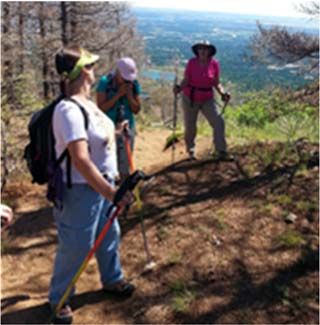April 8, 2024
Decisions Many times along our pathway in life we come to a point of decision making. Some of these decisions are ordinary, like whether to make a casserole or soup. Some are more serious, like when to take the family on a trip to visit Grandma. And some are really challenging, like changing jobs or dealing with relationship issues (at work or at home). Making good decisions takes discipline and the willingness to engage your thinking by using a few cues. Some of these cues you can arrange before you have to make the decision. Dreams, Goals, and Expectations Effective decisions enhance your personal dreams, goals and expectations. These change at different stages of your life. What was important in one stage of life has either been met or left behind. Now you need to rethink what is it that you are trying to accomplish. Consider the casserole versus soup decision. At 20 you are very busy and running around needing lots of carbs, at 45 you are spending time at the gym trying to keep your body trim and healthy, and looking for ways to cut carbs. Then, at 80, you might be trying just to stay healthy, so you might make a soup with some of the casserole ingredients. Different goals require different decisions. Decisions Impact Others Consider the impact that your decision will have on: long term goals, relationships with family members, expression of the talents loaned by your Creator. For instance, if you want to consider a job in a different location, what will you get out of that? What sacrifices will it require for you and your individual family members (spouse, children)? Will you be leaving behind a support network? Would this change represent a running towards or a running from something? Controlling Anxiety “Do not be anxious in anything.” (Phil 4:6). This is a good reminder, and it comes with an admonition that we present our concerns to our Creator with a thankful heart and expect to see a resolution or a suggestion. Anxiety diminishes creativity. And creativity is just what is needed to solve a sticky wicket decision. For instance, maybe moving the family may not be essential. Consider that this job could be accomplished remotely, with Zoom and some travel. Keep your heart open, and resolve to use your gifts for the work of your Creator. God’s creativity is greater than ours will ever be. If what is presented to you is part of His need for your talents, then you will be amazed at what you will see! Think of your Creator as saying, “Look, I’ve got this. You just be ready to do the work!” There are stories both from family members and people we read about in books, who had a dream that included God as the Director of their Dream Team. Here is an example from my world. An engineer with 8 children became frustrated because his bosses would keep his inventions as their own and without credit to him. He made the incredible decision build his own company; he implemented his dream. He also designated God as his primary Director, with whom he conferred daily. He enlisted all of his family members to help with this effort in some way; they became part of his Dream Team. Fifty years later, his company was nationally known, his inventions were prominent technology and his faith was still strong. All 8 of the children had fine educations, strong marriages and children of their own, and he helped to build a church in his community. When he passed away at 100, he was able to support many causes that represented his values and interests. He is one of my great heroes. Values My Hero assessed his values, which became the standards used for decision making. Here is a question he used. What is important to you emotionally, intellectually, physically, and spiritually? What is important to you represents the values that you hold dear. These may also be linked to your strengths, and your dreams. Write them down—or draw pictures that represent what is important to you. Then consider how your decision will impact the values that you have. Will the decision enhance or compromise your values? Policies Create a set of policies that align with your goals and support your values. These policies are statements that you make to remind you to protect your values and your goals. Here are some examples: I organize my day to enhance my talents and skills. I read about and watch videos about people who used their creativity solve problems. I review my values and goals before I make decisions. I include my Creator in order to address the anxieties of decision making. Your policies can also acknowledge your own weaknesses and allow you to fend off demands on your time, energy, and income that do not support your dream. I make choices based upon how they support my dream. I put away a certain percentage of earnings to support my dream. I donate a certain percentage of my earnings to benefit others. I focus my energy only on the activities to support my dream and my values. Decisions? So, now that you have the cues, it is time to think about those decisions that you think you want to make, and the dreams you want to implement. It might take some time to put together your decision chart. You will need to identify goals, values, and commitments (to your Dream Team). This exercise will provide you with a set of standards you can use when you have to make “sticky-wicket” decisions, and make your dreams a reality.




